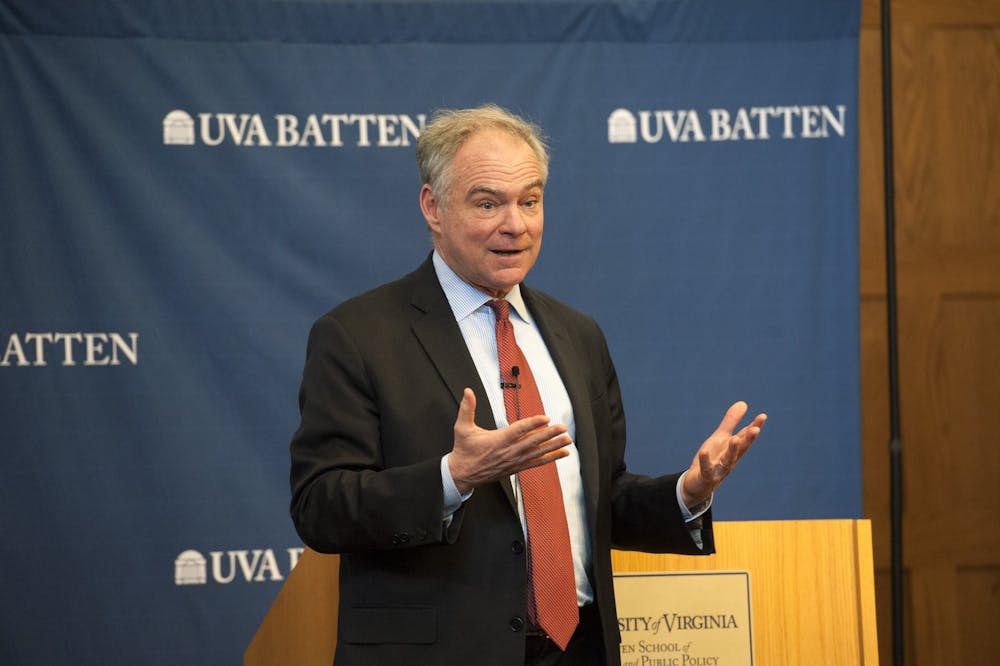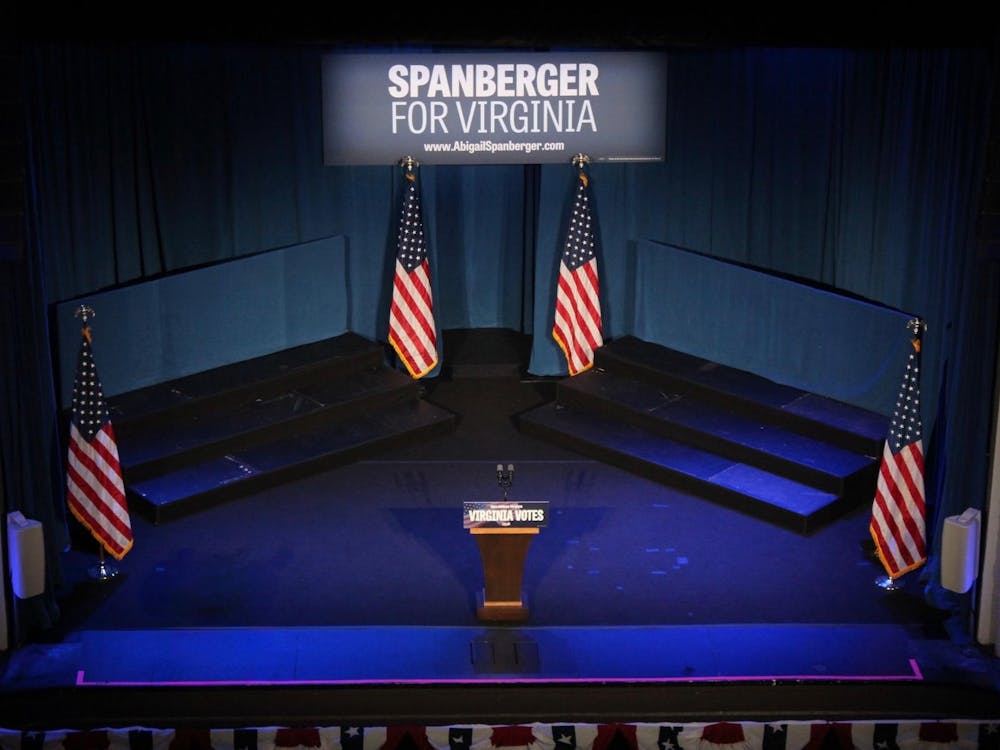The Frank Batten School of Leadership and Public Policy held a discussion with Sen. Tim Kaine, D-Va., about the origins of and the debates surrounding the constitutional issue of war powers. He then addressed the resolution he introduced to the Senate Jan. 3 that would clarify Congress’s constitutional obligation to deliberate and vote on acts of war.
The senator was introduced by dean of the Batten School Ian Solomon, who was appointed last May.
“Senator Kaine wants to protect the constitutional safeguards that govern how and when America goes to war,” Solomon said. “He has posed a policy solution that he will share with us today.”
Kaine spoke about how he became invested in war powers after watching congressional deliberations of the Iraq War unfold and the scheduling of the war vote for October 2002 right before midterm elections. He was spurred into action on this issue because of a report on the War Powers Resolution of 1973, which was made by a panel convened by the University’s Miller Center of Public Affairs.
“Basically what I’ve done since I came to the Senate in January 2013 is take this initial set of outrage about the 2002 deliberation on the war in Iraq, combine it with the intellectual product produced here at U.Va. and [devote] myself to this particular issue,” Kaine said.
The war powers resolution Kaine introduced to the Senate this month is a privileged motion under the War Powers Act. This means that the legislation is guaranteed a vote, can be passed with a simple majority — more than half of the Senate voting affirmative — and can be called to the floor much sooner than other legislation, as soon as ten days after its filing.
Under the War Powers Act, war powers resolutions can order the removal of U.S. troops from hostilities that are not authorized by Congress. Even though the resolution is likely to be vetoed by President Trump, Kaine emphasized the importance of Congress’ responsibility to check executive power, especially in manners of war.
“Congress should do what we’re supposed to do, whatever the president does,” Kaine said.
While he acknowledged the strained relationship between the U.S. and Iran, he condemned Trump’s decision to pull out of the Iran nuclear deal against the advice of the Department of Defense and top military officials.
The deal, which was established in July 2015, aimed to restrict Iran’s development of nuclear weapons, subjecting them to regular inspections by the UN’s International Atomic Energy Agency. It was negotiated by President Obama. Trump has said that the agreement is flawed and ineffective in preventing Iran from developing nuclear weapons.
Kaine explained how votes on war are especially difficult for him, considering his son serves in the Marines. He emphasized that congressional deliberation on war is critical.
“If Congress doesn’t have the guts to have a debate and vote … how dare we say to young men and women who are serving, ‘We didn’t want to vote on this because it’s too unpopular — you go risk your life, you go risk your health,’” Kaine said. “There couldn’t be anything more immoral in the public space.”
Kaine also introduced legislation to amend previous authorizations of war to narrow their focus and prevent them from being used as justifications for acts of aggression that no longer pertain to the original scope of the authorization.
Kaine explained that he values the insight of students and young people in matters of war and peace. He took questions from students at the end of his talk that covered issues such as time limits on congressional war authorization, proportional response in foreign policy and the fate of diplomacy following the killing of Iranian major general Qasem Soleimani by a strike that was ordered by Trump without the approval of Congress.
The senator expressed his high regard for the University’s Batten School of Leadership and Public Policy during his talk.
“I always look forward to interacting with Batten students,” Kaine said. “If you’re going to talk about Thomas Jefferson and James Madison and the potential of a war with Iran, what better place than Batten, where you can talk about weighty matters of constitutional principle, historical figures that we know in Virginia and tough, everyday challenges?”
Solomon stressed the importance of hosting active policymakers.
“Frankly, they [policy makers and leaders] are people who are often in these roles because they care deeply, because they’re passionate to expose our students to that level of care and that passion is inspiring,” Solomon said.







